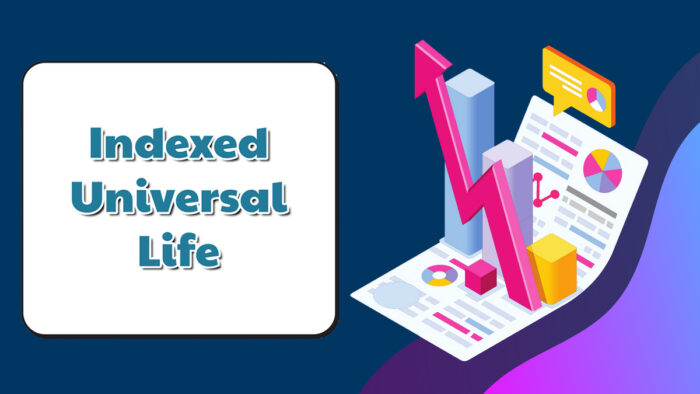Equity-indexed universal life insurance is a form of permanent life insurance policy that connects its cash value growth to the performance of a stock market index.

It’s a bit more complex than other permanent life insurance options you find on the insurance market. So it’s wise to understand how it works before diving in.
Just like all universal life insurance policies, this one form of policy builds cash value over time. You can borrow against it; make use of it as investment or for your insurance costs. And the best part is that it might even allow you to stop paying premiums by yourself if the cash value accumulates enough to cover those insurance costs.
This type of permanent life insurance appeals to those who want to balance between growth potential and protection. And this makes it a strategic and incredible choice for long-term financial planning. With EIUL, you’re not just securing your legacy and future; you’re also participating in market gains with built-in safety nets.
Understanding Equity-Indexed Universal Life Insurance
Equity-indexed universal life insurance offers a unique and special approach to growing your policy’s cash value. Instead of directly investing in stocks or funds like variable universal life insurance, this policy ties your cash value to the performance of a market index. Your money isn’t invested in the market itself, but the cash value grows based on how well the chosen index performs.
Just so you know, if the index increases, your cash value will go up by a percentage popularly referred to as the participation rate. For instance, if the index gains 5% and your participation rate is 50%, your cash value will grow by 2.5%.
You’re not limited to just one account—you can spread your cash value across multiple accounts that track different indexes or even choose a fixed interest rate for some of it. However, when the policyholder passes away, the life insurance company keeps any remaining cash value and only pays out the death benefit to the beneficiaries.
Pros and Cons of Equity-Indexed Universal Life Insurance
Equity-indexed universal life insurance offers some of the benefits of variable universal life insurance but with not much risk, as it’s not directly tied to the stock market. If the market takes a downturn, your policy’s cash value won’t decrease; it just won’t grow.
However, the cash value can shrink if your premium payments outpace the interest earned. Additionally, the participation rate, which determines how much your cash value grows based on market gains, is typically less than 100%. This means your cash value will grow more slowly than the market itself.
These policies are complex and can be challenging to understand. This makes them a very good option for those who have specific financial needs and are interested in more advanced life insurance products.
If you’re considering this type of policy as an investment, it is advisable that you thoroughly research and choose the best company and plan that meets your individual specific needs and budget. However, you need to keep in mind that it’s more expensive than term insurance and requires a good understanding of both insurance and investing to use effectively.
Should I Consider Equity-Indexed Universal Life Insurance?
Whether equity-indexed universal life insurance (EIUL) is worth it depends on your personal financial goals and risk tolerance. If you value protection from market losses but still want some growth potential and can handle the complexity and higher costs, you can consider this type of policy. However, if you prefer simpler and more predictable insurance or investment options, it is advisable to check out for other options.
Equity-indexed life insurance is a sophisticated financial product that merges life insurance with investment features. The flexibility of EIUL extends to premium payments and death benefits’, enabling you to adjust your policy as your financial situation evolves. To use it effectively, you need a solid grasp of both insurance and investment concepts.
This type of policy is generally more expensive than term insurance because part of your premium funds a cash value account that can easily grow over time. The growth of this account is linked to a stock market index, though it may not match market returns exactly. While there might be a floor to protect against losses in a down market, there’s often a cap on how much your returns can grow, limiting the potential upside.
FAQ
Can I withdraw cash from my EIUL policy?
Yes, definitely. Policyholders can withdraw funds or borrow against the cash value. However, you need to keep in mind that withdrawing cash from your policy reduces the death benefit of the policy.
How does EUIL Insurance differ from traditional universal life insurance?
Traditional universal life insurance earns its interest at a fixed rate, while EUIL insurance earns interest depending on the outcome of a certain stock market index.
Are equity-indexed Universal Life Insurance policies invested directly in the stock market?
No, they are not invested directly in the stock market. Just as I have mentioned above, they earn interest based on the outcome or performance of a certain index.



